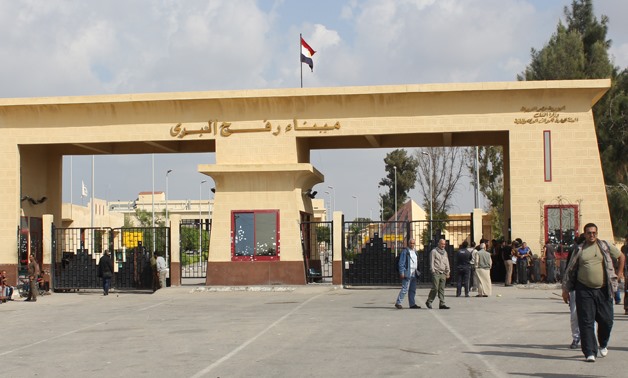
Rafah crossing border - Photo via FlickrGigi Ibrahim
CAIRO – 25 October 2017: A delegation from the European Union (EU) arrived to the Gaza Strip on Wednesday through Erez-Beit Hanoun crossing between the Strip and Israel. The 12-member delegation lead by the head of the EU security missions on the global level is planned to visit the Rafah crossing border with Egypt.
The EU personnel are expected to monitor the movement of Palestinians through the Rafah border with Egypt as per an agreement signed in 2005.
The EU delegation visit is coordinated with the consensus Palestinian government, which assumed its administrative responsibilities in the Gaza Strip following a reconciliation agreement between rival Fatah and Hamas parties under Egypt’s auspices in Cairo, in October. According to the agreement, Hamas, who has been controlling the Rafah border since it took over the Strip in 2007, will hand over the border to the consensus government by October 31.
Shadi Othman, the EU media representative in Palestine said that the EU mission to the Rafah crossing is ready for redeployment within the framework of the 2005 agreement if the Palestinian and Israeli sides agree, according to Palestinian news agency – Maan.
The 2005 Rafah border-crossing agreement provides that Rafah crossing is jointly controlled by Egypt and the PA, with the EU monitoring the Palestinian compliance on the Gaza side. The EU monitoring delegation bore the name "EU Border Assistance Mission Rafah" (EU BAM Rafah), and consisted of 70 personnel, including a special security team. The agreement was applied smoothly until 2006 when Israel started issuing security warnings that prevented the EU monitors from travelling to the terminal.
In October, Fatah and Hamas signed a reconciliation agreement in Cairo under Egypt’s auspices ending a decade-long Palestinian split. Despite a number of attempts to reconcile the Palestinian split, led by international and Arab efforts, only Egypt, with its historical and political position, was able to bring an end to the crisis. Egypt managed to bring the conflicting Palestinian factions to overcome the obstacles and to invest the opportunities to create new conditions for the future of the Palestinian people.
Comments
Leave a Comment